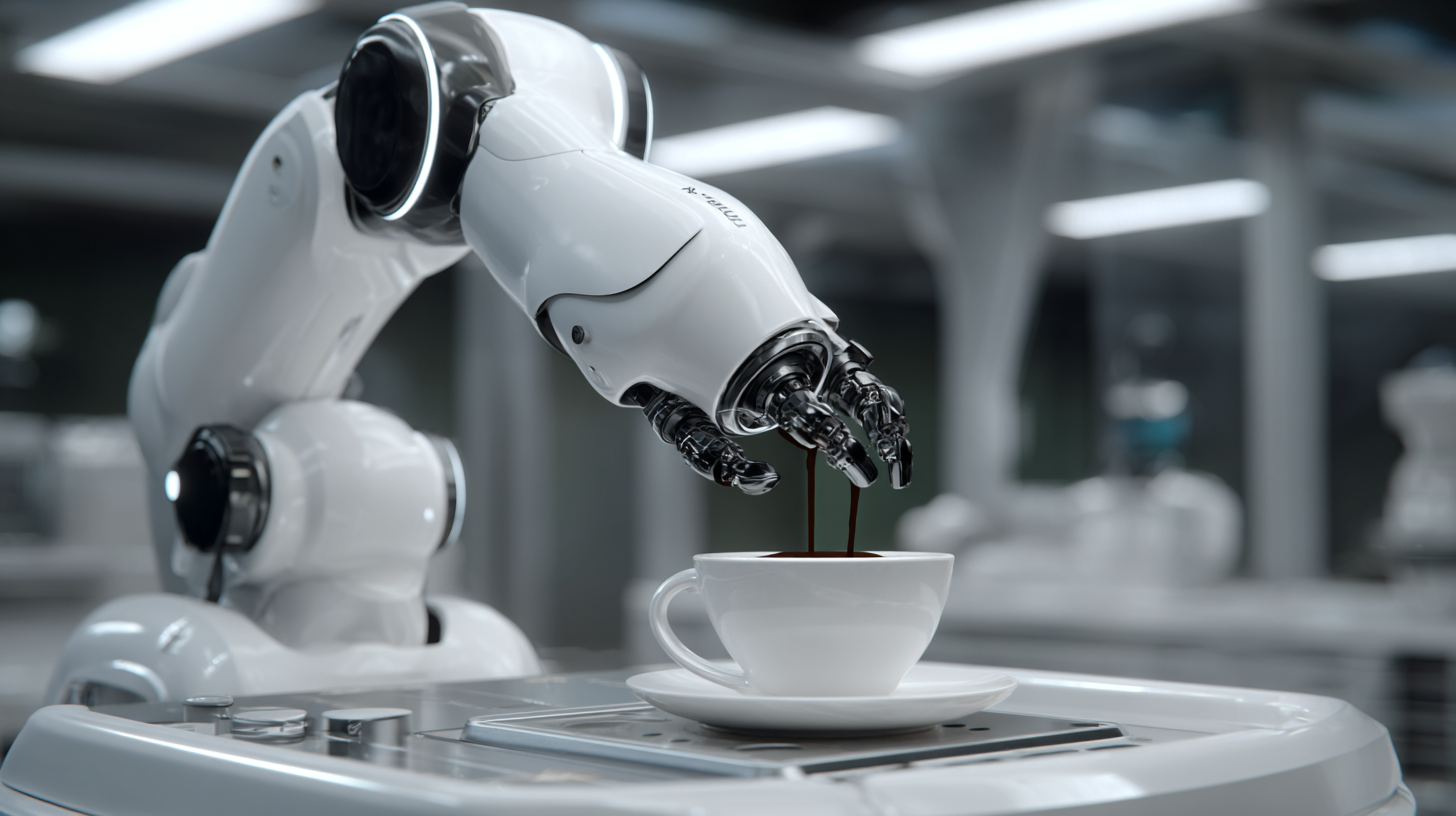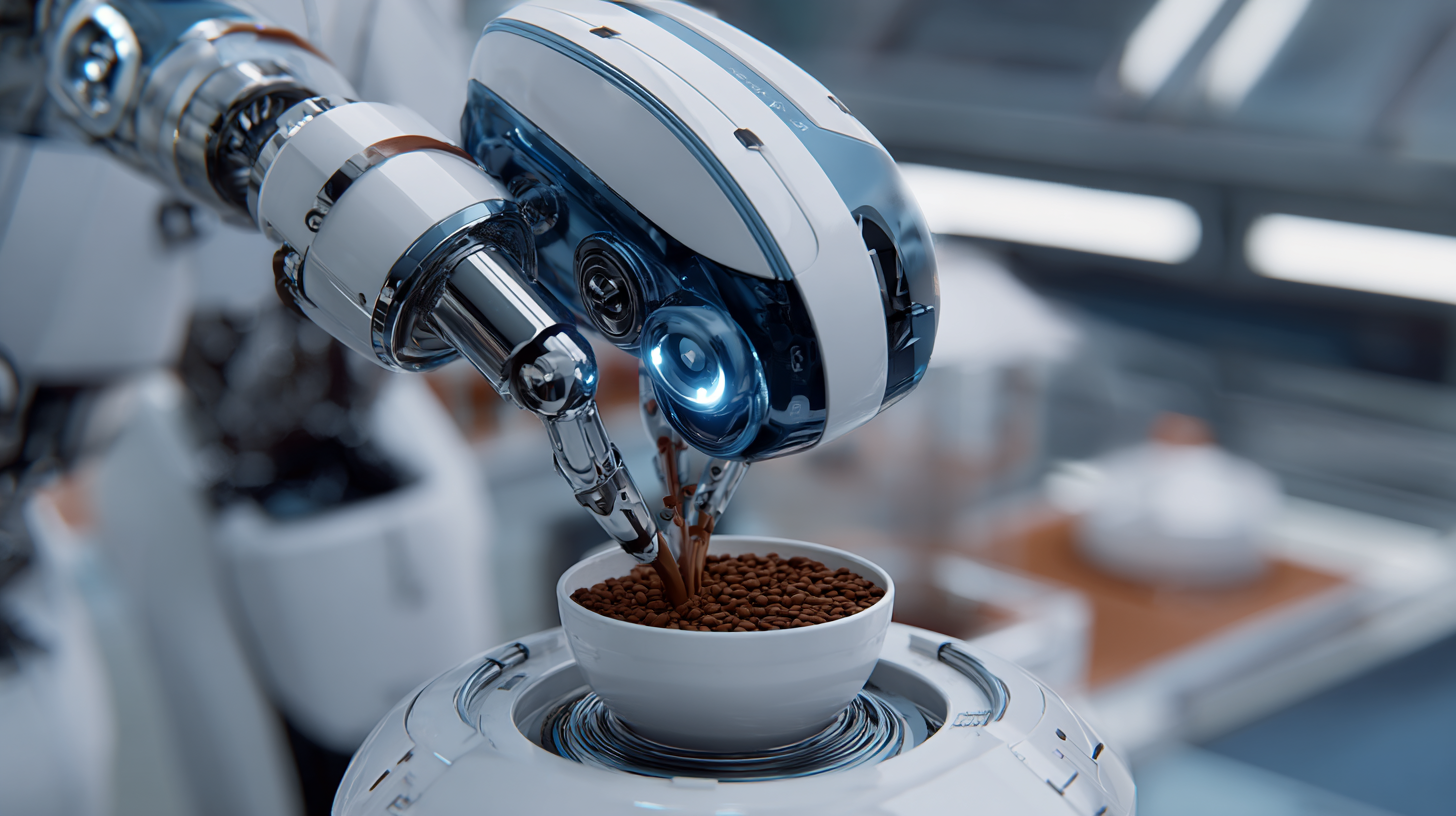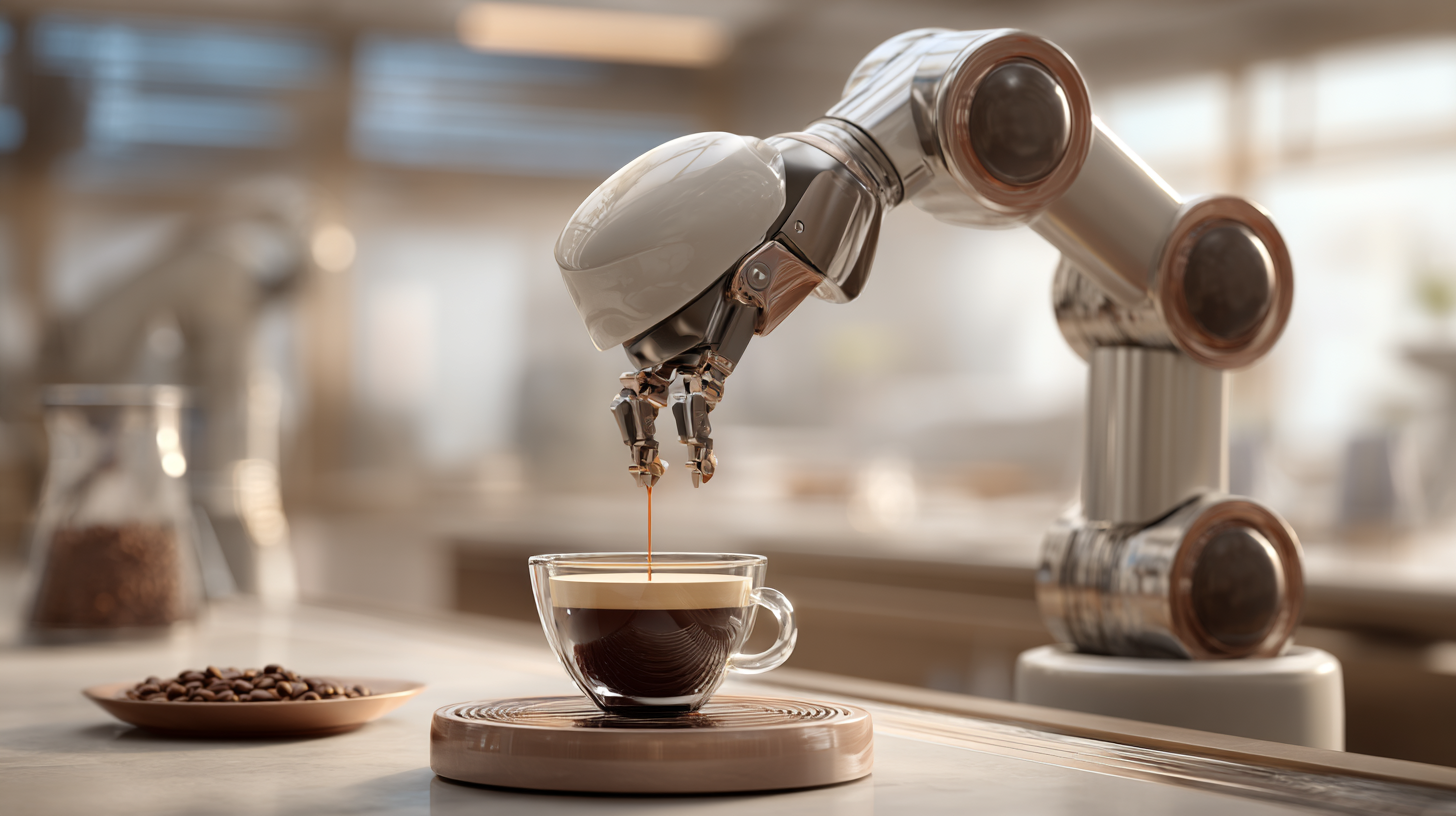Exploring the Future of Automated Coffee Making with Coffee Robots
As we delve into the burgeoning world of automated coffee making, the concept of the "Coffee Robot" is swiftly transforming from a whimsical idea into a practical reality. This technology holds the potential to revolutionize how we brew our daily cup of joe, making coffee preparation not only efficient but also consistent in quality. According to renowned coffee technology expert Dr. Emily Hart, "Coffee Robots are not just sophisticated machines; they represent the future of our coffee culture, where convenience meets craftsmanship."
In this era where convenience is king, coffee enthusiasts and busy professionals alike seek to enjoy high-quality coffee without the hassle of traditional brewing methods. The evolution of the Coffee Robot promises to cater to these demands, integrating smart technologies that allow users to customize their coffee experience through mobile apps and voice commands. As we explore the cutting-edge advancements in this industry, we will uncover how Coffee Robots are designed to enhance both the flavor and experience of coffee drinking.
With the advancements in artificial intelligence and robotics, the capabilities of these machines are expanding rapidly, ushering in a new era of coffee making that intertwines tradition with innovation. In this exploration, we will examine not just the technical aspects of Coffee Robots but also how they are shaping our relationship with coffee and culture as a whole. Join us as we unravel the future of coffee making with the incredible innovation of Coffee Robots at the forefront.

The Evolution of Coffee Robots: From Concept to Reality
The evolution of coffee robots has been a fascinating journey, transforming the way we perceive automated beverage preparation. Initially conceived as innovative prototypes in the early 2000s, coffee robots have rapidly advanced due to breakthroughs in robotics and artificial intelligence. A report by the International Coffee Organization highlights that the global coffee machine market is expected to reach $24 billion by 2025, with a growing segment dedicated to automated machines. This surge in market demand underscores a significant shift towards convenience and quality, as consumers increasingly seek out seamless coffee experiences.
As technology continues to improve, coffee robots are becoming more sophisticated, integrating features such as customizable brewing settings and smart connectivity. Research from the National Coffee Association indicates that 60% of consumers prefer machines that offer personalization options, hinting at a pivotal role for coffee robots in the future. Tips for those considering investing in a coffee robot include evaluating features that match your brewing preferences, such as grind size, brew strength, and machine cleanliness, to maximize your coffee experience.
Moreover, investing in quality coffee robots can significantly impact sustainability efforts within the industry. Many models are designed to minimize waste and enhance energy efficiency. As highlighted in a study by the Specialty Coffee Association, automated systems can reduce water usage by up to 30%, making them an environmentally-friendly choice for coffee lovers. When selecting a coffee robot, look for eco-friendly certifications and features that promote efficient brewing practices.

Key Technologies Powering Automated Coffee Making
The future of automated coffee making is being shaped by several key technologies that enhance the efficiency and quality of the coffee brewing process. Recently showcased at the Canton Fair, AI-powered coffee robots are making waves with their ability to not only brew a perfect cup of coffee but also to create personalized beverage experiences. These robots utilize advanced algorithms and machine learning to adapt to user preferences, ensuring that every cup meets individual tastes. The integration of robotics in coffee preparation promises to revolutionize how consumers engage with their favorite beverages.
Furthermore, the growing trend toward automated solutions is also reflected in the development of sophisticated espresso machines and bean-to-cup systems. These machines are designed to grind, brew, and serve coffee with minimal human intervention, prioritizing both speed and consistency. As coffee consumption continues to rise globally, particularly in emerging markets, the push for automation in coffee equipment is not just about efficiency; it's about meeting the evolving demands of coffee lovers everywhere. As technology advances, the potential for even more innovative coffee-making solutions seems limitless, setting the stage for an exciting new era in the coffee industry.
Benefits of Using Coffee Robots in Modern Cafés
As the food and beverage industry evolves, the integration of coffee robots in modern cafés presents a compelling value proposition. Recent industry reports indicate that autonomous coffee-making solutions can significantly enhance operational efficiency, reduce labor costs, and deliver consistent quality. For instance, a coffee robot can prepare expertly crafted beverages in less than a minute, outperforming traditional barista service during peak hours. This efficiency is vital for cafés looking to maximize throughput without compromising on the customer experience.
The rise of automated coffee-making is also fueled by changing consumer preferences. Today’s café-goers are drawn to the novelty and technological appeal of robot baristas, positioning these establishments as trendy destinations. A comprehensive analysis shows that cafés utilizing robotics see a boost in customer engagement and satisfaction, as patrons are intrigued by the automated process. Furthermore, with the global robotic café market projected to grow significantly over the next few years, investing in this technology could provide a competitive edge in an increasingly crowded space. The future of coffee-making may very well depend on embracing these innovations to meet the demands of a tech-savvy clientele.

Challenges and Limitations of Coffee Automation
The rise of coffee automation is rapidly transforming the beverage industry, yet it is not without its challenges and limitations. According to a report by the International Coffee Organization (ICO), the global coffee market is projected to grow at a CAGR of 4.4% through 2025. However, the implementation of coffee robots in cafes and restaurants faces hurdles such as high initial investment costs and the need for ongoing maintenance. Many small businesses struggle with the financial implications of transitioning to automated systems, where the typical coffee robot can cost anywhere from $5,000 to over $20,000, depending on its capabilities.
Moreover, while automated coffee machines can ensure consistency in taste and presentation, they often lack the nuanced understanding of human baristas. A survey from the Specialty Coffee Association highlighted that 65% of coffee drinkers value the expertise and personal touch offered by skilled baristas. This poses a significant challenge for automation as consumers may resist fully automated services in favor of the artisanal experience. Additionally, complex orders and customizations can overwhelm robotic systems, leading to potential customer dissatisfaction when machines fail to meet specific preferences. As the industry navigates these obstacles, the future of coffee automation will hinge on balancing efficiency with the cherished human elements of coffee making.
Exploring the Future of Automated Coffee Making with Coffee Robots - Challenges and Limitations of Coffee Automation
| Feature | Description | Challenge | Possible Solution |
|---|---|---|---|
| Consistency | Consistent brewing temperatures and times for optimal coffee extraction. | Variability in ingredient quality affects consistency. | Standardized ingredient sourcing and quality checks. |
| User Interface | Intuitive controls for users to customize settings. | Complexity might deter non-tech-savvy users. | User-friendly design and guided tutorials. |
| Maintenance | Regular cleaning and maintenance routines to ensure quality. | Automation can lead to neglect of proper maintenance. | Automated reminders and easy-access cleaning protocols. |
| Cost | Upfront investment for coffee robot technology. | High costs may limit user adoption. | Flexible financing options and subscription models. |
| Adaptability | Ability to adapt recipes based on user preferences. | Limited adaptability to unique user tastes and preferences. | Machine learning algorithms to refine user profiles. |
Future Trends: What’s Next for Coffee Robots?
The coffee industry is rapidly evolving, and coffee robots are set to play a pivotal role in its future. According to a report by ResearchAndMarkets, the global coffee automation market is projected to grow at a CAGR of 11.2%, reflecting increasing consumer demand for efficiency and convenience. These robots are not only making the brewing process more precise but are also enhancing the quality of coffee served in cafes and homes alike. With advancements in artificial intelligence and machine learning, it is expected that these coffee robots will soon offer personalized brewing options based on individual preferences, further embedding themselves into the daily coffee rituals of consumers.
Moreover, as automation technology becomes more accessible, smaller cafes can adopt coffee robots to streamline operations and reduce labor costs. A survey conducted by the Specialty Coffee Association revealed that 62% of café owners are considering automated solutions to help increase productivity and meet rising customer expectations. In addition, coffee robots are increasingly being integrated with IoT technology, enabling remote monitoring and management, which can lead to significant operational efficiencies. This convergence of technology and coffee culture suggests a future where coffee robots not only satisfy the demand for high-quality beverages but also revolutionize the way coffee is prepared and consumed.
